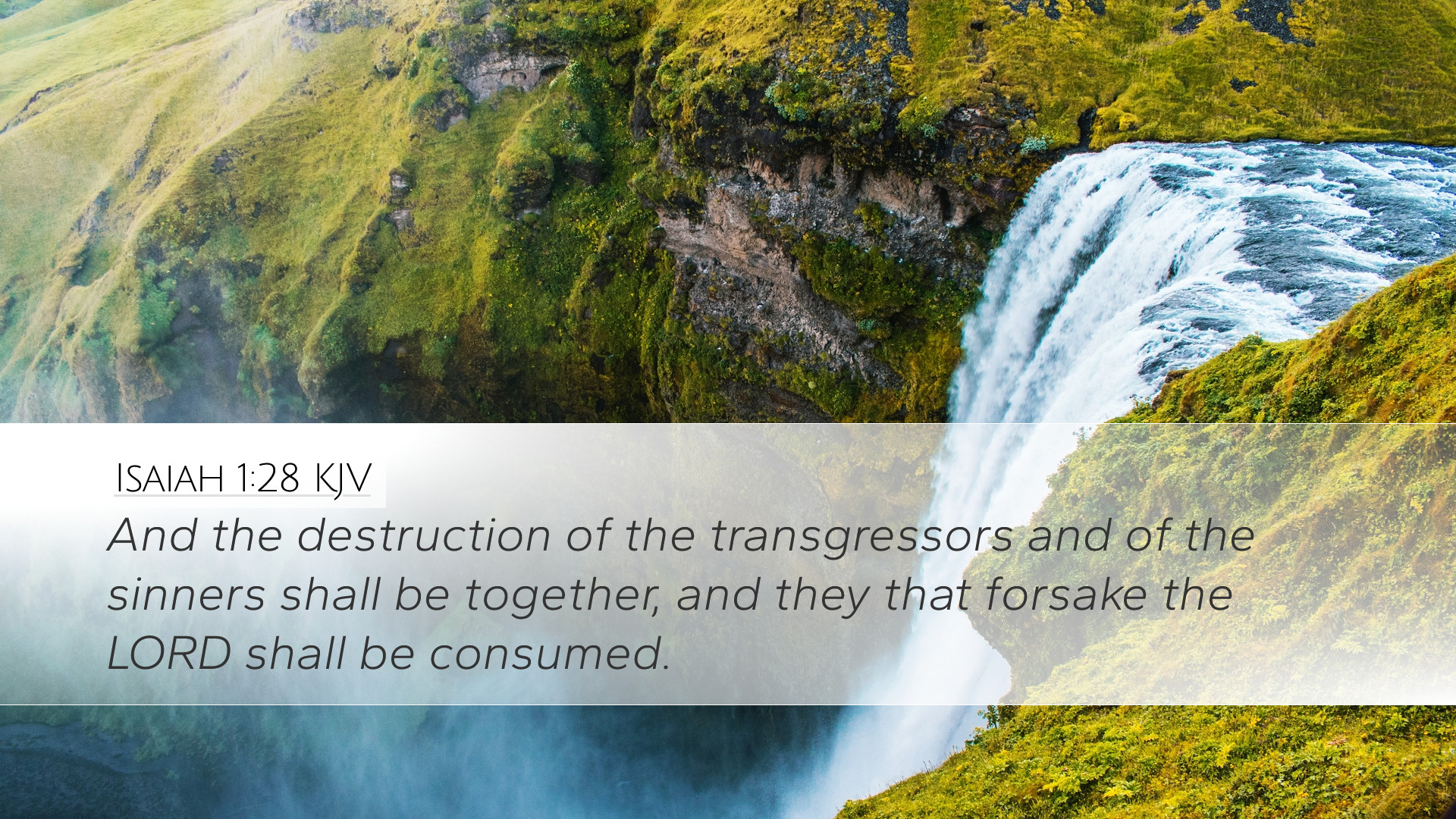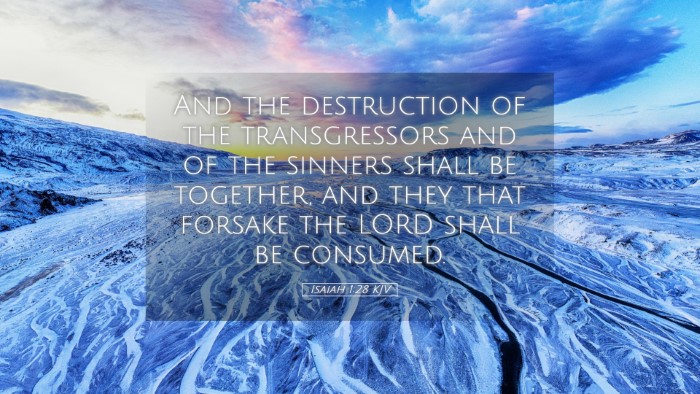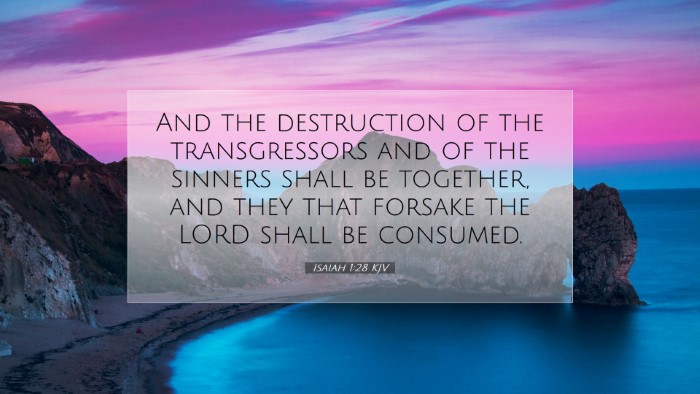Commentary on Isaiah 1:28
Verse (Isaiah 1:28): "But rebels and sinners shall be broken together, and they that forsake the LORD shall be consumed."
Contextual Background
Isaiah's prophecy emerges during a turbulent time for Judah. It encapsulates a divine warning against the moral decay and idolatry prevalent among the people. The broader chapter critiques the social injustices and superficiality in religious practices, establishing a critical backdrop for the verse in question.
Theological Insights
This verse serves as a stark reminder of the consequences faced by those who rebel against God's commands. Notably, the terms "rebels" and "sinners" denote a deliberate choice to oppose divine authority, establishing a clear dichotomy with the faithful remnant who remain loyal to God.
Matthew Henry's Commentary
Henry emphasizes the collective fate of the rebellious: "the rebels, meaning those who oppose both the government of heaven and their own conscience, shall be broken." This resonates with the prophetic tradition warning of judgment through divine intervention.
Furthermore, Henry points out that forsaking the LORD leads to spiritual and moral decay. The imagery of being "consumed" suggests a complete and utter destruction, underscoring the seriousness of abandoning one's faith.
Albert Barnes' Observations
Barnes elaborates on the nature of rebellion against God, indicating that it is not solely a personal failure but a societal one that implicates a broader community's disobedience. He writes, "The wicked, who live in opposition to God, may appear for a time to thrive, but their end is certain and dreadful."
The "forsakers" mentioned in the text point toward those who have turned away from their covenant relationship with Yahweh. Barnes remarks that the fate of such individuals serves as a dire warning for the faithful, illustrating the necessity of perseverance in faith amidst a corrupt society.
Adam Clarke's Exegesis
Clarke ventures into linguistic and cultural dimensions, noting that the Hebrew terms used denote a strong sense of betrayal and abandonment. He asserts that the verse encapsulates God's justice: "There is no refuge for those who will not return to Him."
He further emphasizes that God's judgment is not indiscriminate; it specifically targets those who actively choose to ignore His statutes. Clarke asserts, "The promise of redemption is always prefaced by the acknowledgment of sin," thus viewing this verse as part of a larger narrative calling for repentance.
Practical Applications
For pastors and theologians, this passage serves as a poignant reminder about the importance of faithfulness to God. Here are several applications derived from the insights of these commentaries:
- Warning Against Complacency: The danger of complacency in one's spiritual journey can lead to significant spiritual decline.
- Call to Accountability: Leaders within the faith community must foster an environment where accountability is encouraged, emphasizing the necessity of confession and repentance.
- Encouragement to Return: There is always hope for restoration for those willing to return to God, reinforcing the merciful character of God amidst judgment.
Conclusion
Isaiah 1:28 serves as a profound reminder of the seriousness of spiritual rebellion. The combined insights from Henry, Barnes, and Clarke highlight God's justice while simultaneously offering hope for redemption. This duality is a fundamental theme within the prophetic literature and carries immense relevance for contemporary believers as they navigate their faith in a complex world.


